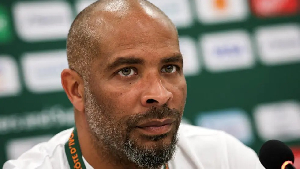Lagos, the sixth-largest city in the world by city population is known for its beach resorts, nightlife and activity.
Nigeria has 36 states and one of them is Lagos State. Though it is the smallest state in the country, Lagos remains to be the most populous and a major financial centre.
Here are facts about this megacity.
1. It has the Tallest Building in West Africa
Lagos state hosts the tallest building in West Africa, NECOM house towers and it is 160m above the city.
2. The Third Mainland Bridge which connects Lagos Island to the mainland was the longest bridge in Africa measuring 11.8 km until 1996. Built by Julius Berger Nigeria Plc, the official name of the bridge is Ibrahim Babangida Bridge.
3. Lagos Handles 80% of the country’s imports
Lagos handles majority of Nigeria's imports. Located in the Southwest beach line of Nigeria, Lagos port is responsible for processing 80% of goods in Nigeria.
This port is also mentioned as one of the top 10 in Africa.
4. Lagos was called Eko before colonisation by locals. It served as a major centre for slave-trade, from which then Oba of Benin Ado and all of his successors for over four centuries supported - until 1841 when Oba Akitoye ascended to the throne of Lagos and attempted to ban slave-trading.
Local merchants strongly opposed the intended move, and deposed, exiled the king and installed Akitoye's brother Kosoko as Oba.
5. Lagos maintained its status as capital when Nigeria obtained its independence from Britain in 1960. Lagos was, therefore, the capital city of Nigeria from 1914 until 1991, when it was replaced with Abuja as the Federal Capital Territory.
6. Until the coming of the Benins, Lagos's geographic boundary was Lagos Mainland. Lagos Island, the seat of the Oba of Lagos, then consisted of a pepper farm and fishing posts. No one lived there. The name Eko was given to it by its first king, Oba Ado, during its early history. Lagos also saw periods of rule by the Kingdom of Benin.
LifeStyle of Monday, 28 September 2020
Source: pulse.ng













